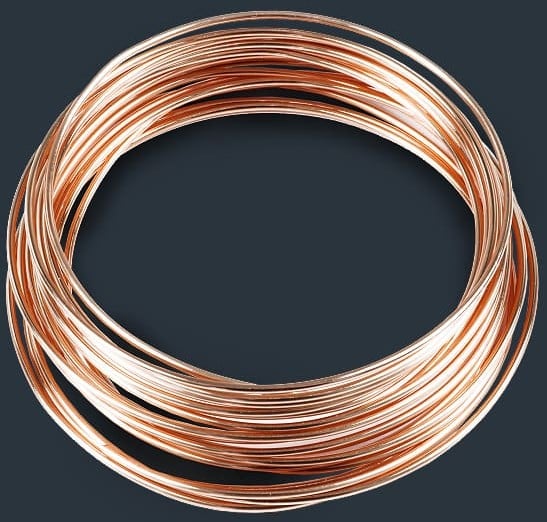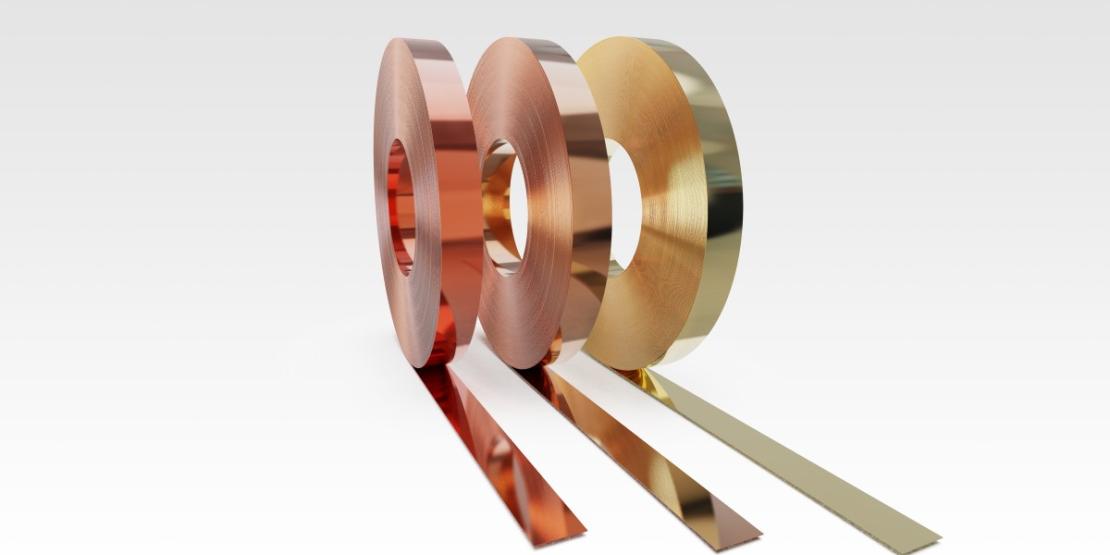Enhancing Your Cooking Area with Costs Copper Products: Tips and Ideal Practices
Enhancing Your Cooking Area with Costs Copper Products: Tips and Ideal Practices
Blog Article
Checking Out the Diverse Applications of Copper Products in Modern Industries
Copper items have established themselves as indispensable elements across a myriad of modern-day markets, largely because of their impressive conductivity, pliability, and resistance to deterioration. From enhancing the efficiency of electrical systems to playing a vital function in renewable resource innovations, the versatility of copper is obvious. Its recyclability placements it as a sustainable option in production and electronic devices. As sectors progressively focus on advancement and sustainability, the varied applications of copper warrant a closer assessment, especially regarding their potential impact on future technological developments and environmental practices.
Electric Applications of Copper
Copper is an important material in the electric market, accounting for about 60% of the total need for non-ferrous steels worldwide - Copper Products. Its remarkable electric conductivity, which is virtually two times that of light weight aluminum, makes it the recommended choice for a variety of electrical applications. From circuitry systems in domestic and business structures to high-voltage power transmission lines, copper ensures efficiency and reliability in power delivery
In addition to electrical wiring, copper is indispensable to the production of electrical elements such as transformers, generators, and electric motors. These components leverage copper's thermal conductivity and pliability, essential for warm dissipation and efficient performance. Copper's resistance to rust boosts the lifespan and sturdiness of electrical systems, making it a cost-effective remedy in the lengthy term.
The development of renewable resource resources, such as solar and wind power, has actually better boosted the need for copper in electrical applications. As sectors transition in the direction of sustainable energy services, copper's role comes to be much more vital. On the whole, the adaptability and efficiency features of copper strengthen its condition as a keystone material within the electric market, driving innovation and effectiveness throughout different applications.
Plumbing and Piping Solutions
In modern-day plumbing systems, the selection of materials substantially affects both functionality and longevity. Copper has actually become a preferred option because of its one-of-a-kind residential or commercial properties, including rust resistance and antimicrobial attributes. These attributes ensure that copper piping continues to be durable and secure for moving safe and clean water, a critical factor to consider in domestic and business applications.
Among the crucial benefits of copper in pipes is its capacity to hold up against high temperatures and pressures, making it ideal for a variety of applications, from hot water systems to home heating and cooling down networks. Additionally, copper's versatility permits simpler setup in complex piping formats, lowering the threat of failures and leaks.
Another noteworthy advantage is copper's lengthy lifespan, commonly surpassing 50 years with proper upkeep. This durability not just minimizes replacement costs yet also adds to lasting techniques by decreasing waste. Copper's recyclability lines up with modern ecological requirements, promoting a circular economy within the plumbing industry.
Copper in Renewable Energy
The flexibility of copper prolongs beyond plumbing applications, playing a vital duty in the sustainable energy sector. In solar panels, copper is utilized in photovoltaic or pv cells and electrical wiring, facilitating efficient power conversion and transmission.

Furthermore, as the worldwide need for electric cars (EVs) boosts, copper's function in battery systems and billing facilities ends up More Help being a lot more substantial. The product's capacity to perform power effectively is indispensable to the performance of EV batteries, boosting array and billing speed.
Copper's Duty in Electronics
Electronics manufacturing counts greatly on copper's extraordinary buildings, specifically its high electric conductivity and thermal performance. These features make copper an ideal option for a large variety of digital components, consisting of adapters, motherboard, and circuitry. The metal's capability to effectively transfer electrical signals ensures marginal power loss, which is important in high-performance electronic tools.
In addition, copper's thermal conductivity plays a substantial duty in heat dissipation, protecting delicate elements from overheating. This is especially important in modern-day electronics, where compact layouts result in increased warmth generation. Copper is also favored for its pliability and ductility, enabling it to be easily formed into complex designs that fulfill the demands of innovative electronic applications.
With the increase of consumer electronic devices, telecommunications, and electrical automobiles, the demand for copper in the electronic devices sector proceeds to grow. As advancements in technology evolve, copper remains important to achieving higher efficiency and reliability in digital items. Its recyclability further improves its appeal, as makers look for sustainable options without endangering high quality. Hence, copper remains a foundation product in the ever-expanding area of electronics.
Cutting-edge Uses in Manufacturing

One notable application is in additive manufacturing, where copper-based products are employed in 3D printing processes. This permits the development of complex geometries this hyperlink and lightweight elements, particularly in the aerospace and auto fields. Furthermore, copper's thermal conductivity makes it an excellent option for warmth exchangers, improving performance in commercial air conditioning systems.
Moreover, the increase of clever production has seen the unification of copper in IoT devices, where its conductive capacities support advanced picking up modern technologies. In the world of renewable energy, copper is critical in the manufacturing of photovoltaic panels and wind turbines, helping with a lot more reliable power conversion and circulation.
As sectors strive for sustainability and technology, copper's adaptability and efficiency remain to place it as a crucial material, driving improvements in manufacturing and contributing to the development of smarter, much more effective products.
Final Thought
In summary, copper products demonstrate remarkable versatility across various modern sectors. Copper Products. Their premium conductivity boosts electric applications, while rust resistance makes sure dependability in plumbing. The essential role of copper in renewable resource and its crucial feature in electronics highlight its significance in advancing lasting practices. Furthermore, ingenious uses in making emphasize copper's versatility and withstanding value. Jointly, these applications illustrate copper's crucial payment to technical progress and industrial effectiveness in contemporary culture.
From boosting the effectiveness of electric systems to playing an important duty in sustainable power technologies, the convenience of copper is apparent. As markets increasingly prioritize development and sustainability, the diverse applications of copper call for a closer examination, especially concerning their prospective impact on future technical advancements and environmental methods.
The growth of eco-friendly power resources, such as solar and wind power, has further raised the need for copper in electrical applications. In general, the convenience and efficiency characteristics of click resources copper solidify its status as a cornerstone material within the electrical market, driving technology and performance across numerous applications.
The versatility of copper extends beyond plumbing applications, playing an important role in the renewable power market.
Report this page